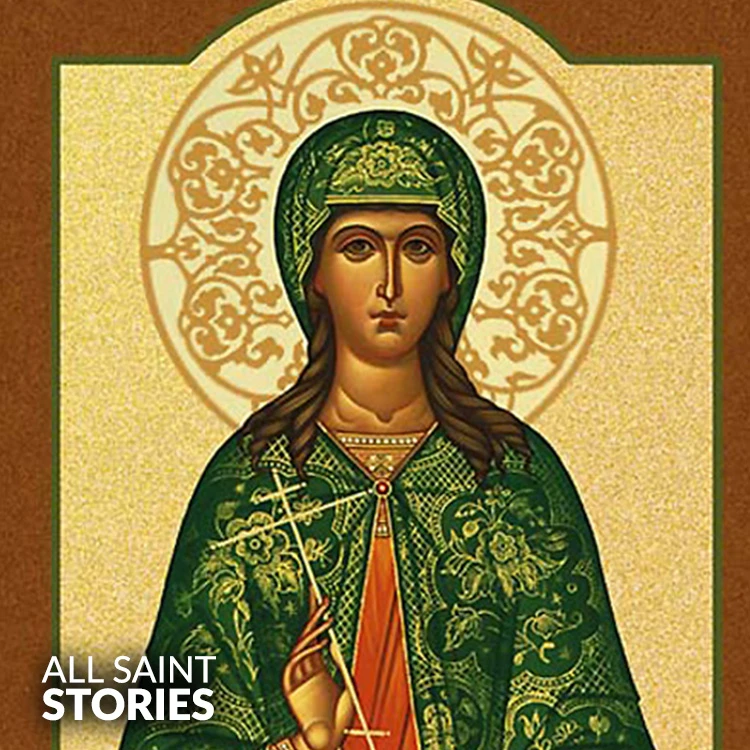Dear Saint Julia, You who endured suffering with grace, Intercede for us in our time of need. May your faith and courage inspire us to remain steadfast in love and hope, No matter the trials we face. Guide us with your wisdom and help us to grow in holiness. Through your prayers, may we find peace and strength in the Lord. Amen.
ST. JULIA
ST. JULIA

Saint Julia of Carthage is a Christian martyr who died during the Roman persecutions. Known for her steadfast faith, she was martyred for refusing to renounce Christianity. Her unwavering devotion to Christ and her sacrifice has made her a revered figure in Christian tradition, and her feast day is celebrated on May 23.
Saint Julia of Carthage was a young Christian woman who lived during the time of the Roman persecutions under Emperor Diocletian. She is remembered for her courage and unwavering faith in the face of death. According to tradition, Julia was from a noble family in North Africa and was a devout Christian who took her faith seriously. When the Roman authorities began their crackdown on Christians, Julia was arrested for refusing to renounce her faith.
Her martyrdom is tied to her steadfast refusal to betray Christianity, even under the threat of death. The specifics of her martyrdom are not well documented, but she is often depicted as having been subjected to various forms of torture. Despite the intense persecution, Julia remained resolute and continued to profess her faith in Christ. It is said that she was martyred in the early 4th century, though the exact year of her death is unknown.
Her death is celebrated as a testament to her devotion and courage. After her martyrdom, Julia was buried in Carthage, the city where she had lived and died. Over time, her memory became an inspiration to Christians, especially those facing persecution. Her feast day, May 16, is a day to remember her sacrifice and to reflect on the strength of faith in the face of suffering.
Saint Julia’s story serves as a powerful example of the Christian call to remain faithful to Christ, no matter the cost. Though details of her life are sparse, her legacy as a martyr continues to inspire Christians around the world, especially those who face oppression for their beliefs. She is honored as a saint in the Christian tradition, and her example encourages the faithful to persevere in their commitment to Christ even in the most difficult circumstances.
Video Not Found
The information on this website is compiled from various trusted sources. While we aim for accuracy, some details may be incomplete or contain discrepancies.
If you notice any errors or have additional information about this saint, please use the form on the left to share your suggestions. Your input helps us improve and maintain reliable content for everyone.
All submissions are reviewed carefully, and your personal details will remain confidential. Thank you for contributing to the accuracy and value of this resource.
Credits & Acknowledgments
- Anudina Visudhar (Malayalam) – Life of Saints for Everyday
by Msgr. Thomas Moothedan, M.A., D.D. - Saint Companions for Each Day
by A. J. M. Mausolfe & J. K. Mausolfe - US Catholic (Faith in Real Life) – Informational articles
- Wikipedia – General reference content and images
- Anastpaul.com – Saint images and reflections
- Pravachaka Sabdam (Malayalam) – Saint-related content and insights
We sincerely thank these authors and platforms for their valuable contributions. If we have unintentionally missed any attribution, please notify us, and we will make the correction promptly.
If you have any suggestion about ST. JULIA
Your suggestion will help improve the information about this saint. Your details will not be disclosed anywhere.
© 2026 Copyright @ www.allsaintstories.com





 English
English
 Italian
Italian
 French
French
 Spanish
Spanish
 Malayalam
Malayalam
 Russian
Russian
 Korean
Korean
 Sinhala
Sinhala
 Japanese
Japanese
 Arabic
Arabic
 Portuguese
Portuguese
 Bantu
Bantu
 Greek
Greek
 German
German
 Dutch
Dutch
 Filipino
Filipino